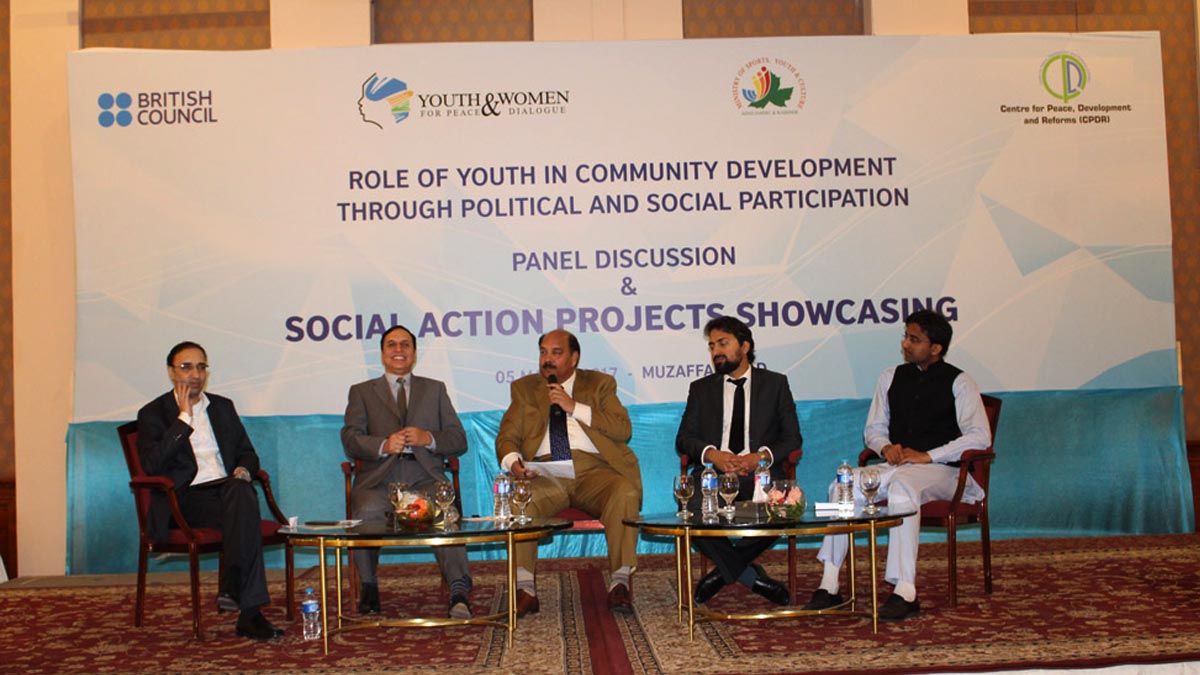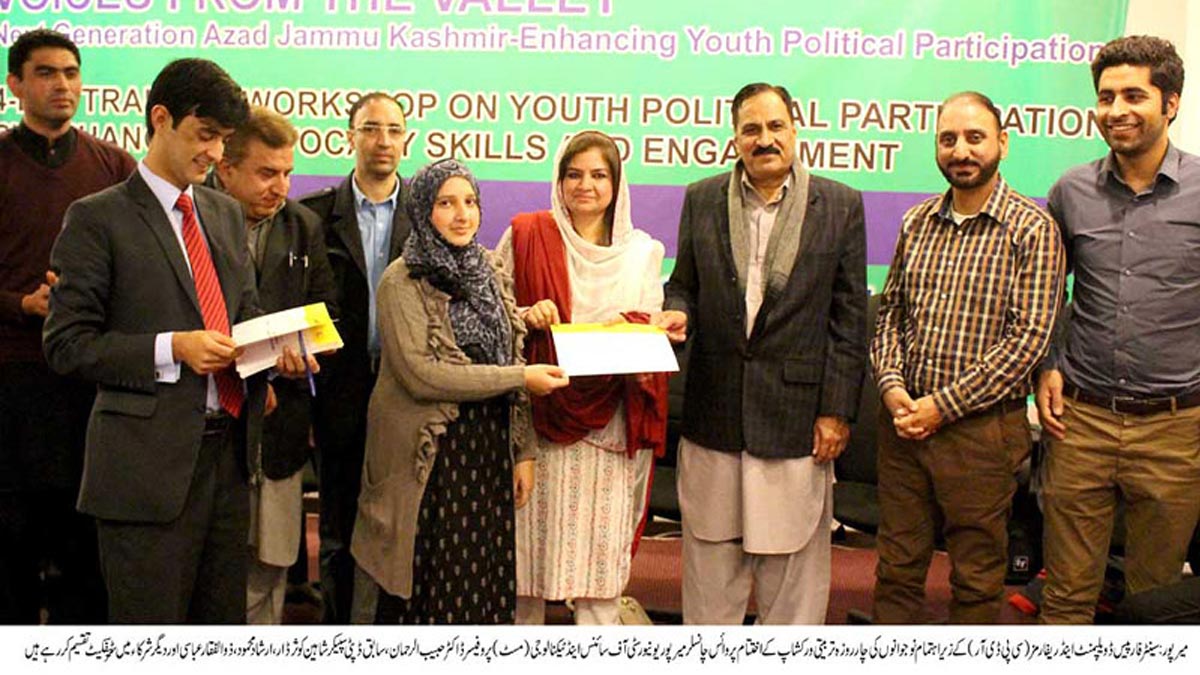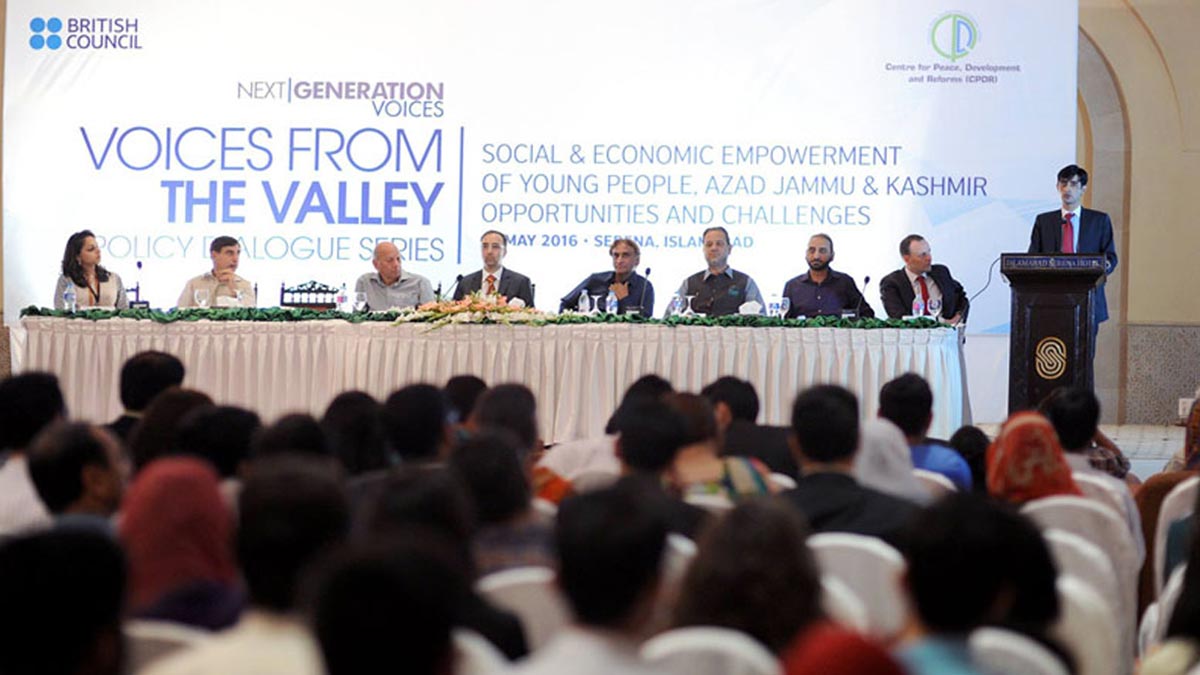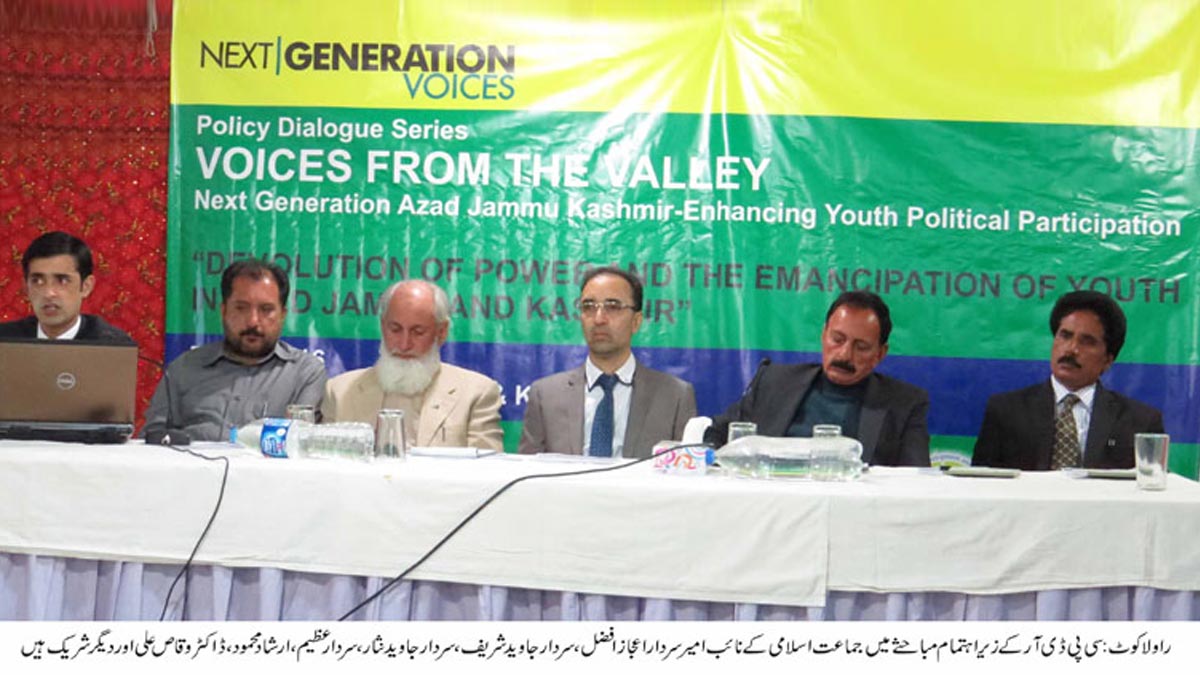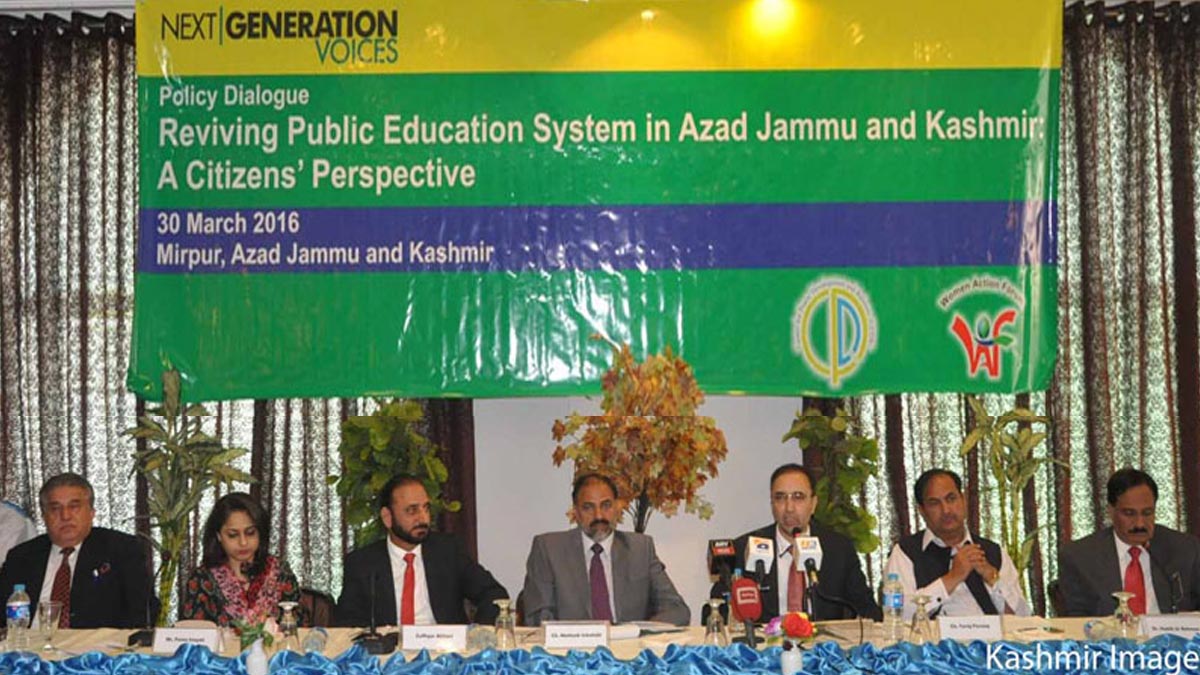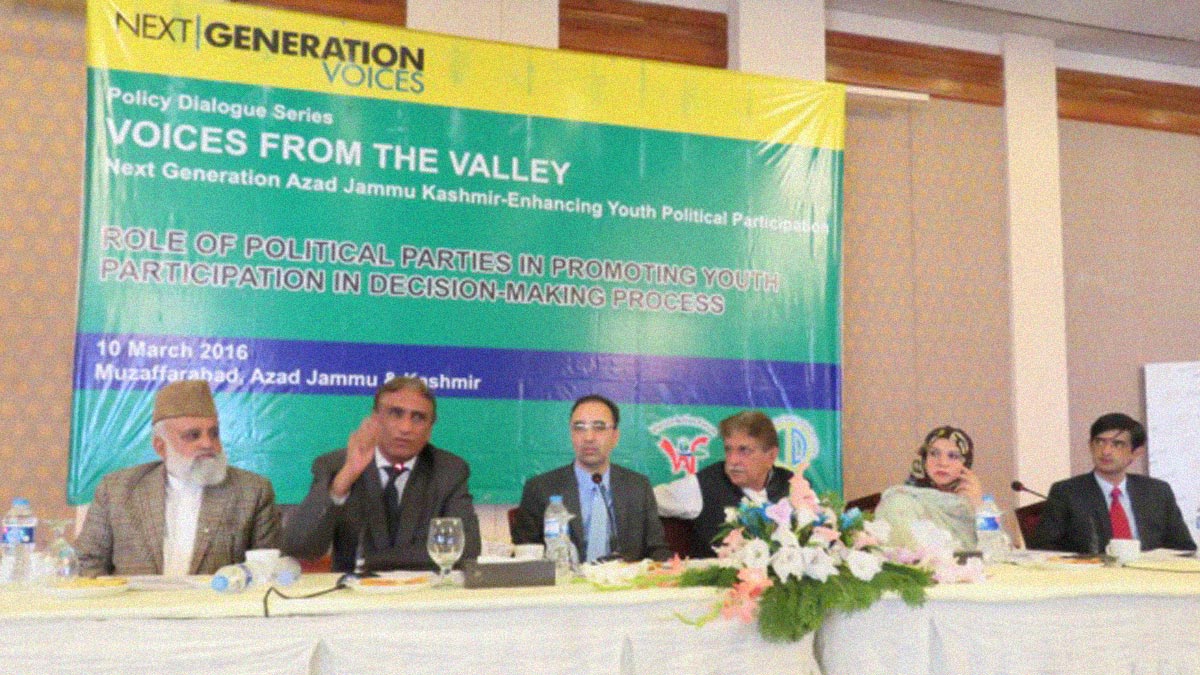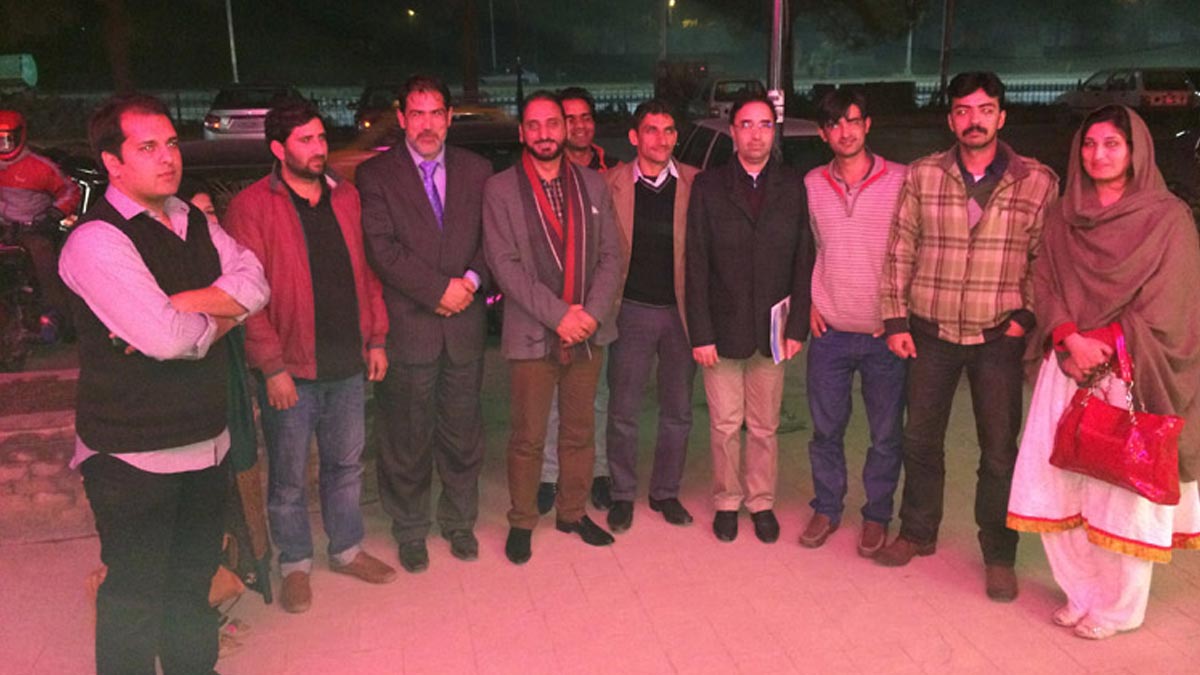- February 17, 2017
- @admin
- 0
- 17th February 2017
- Islamabad
The formulation of a comprehensive youth policy in AJK has been a challenging task. Nonetheless, all the major political party representatives who came together to a single platform on Friday 17th February 2017 assured commitment to the cause.
Addressing young people at the Youth Policy Dialogue organized by Center for Peace, Development and Reforms (CPDR) in collaboration with the British Council Pakistan, Ch. Muhammad Saeed, Minister for Sports, Culture & Youth Affairs applauded the efforts of the civil society and political parties in engaging in advocacy and dialogue to build consensus on the issue. He reaffirmed his party’s support for participation of youth in politics and assured that his party will provide maximum opportunity to youth in upcoming local bodies’ elections. While responding to a question by one of the youth participants, he added that subjects like income tax and revenue collection, currently at the disposal of Kashmir Council, will be delegated to elected assembly. Consequently, more resources will be available in future for youth policy implementation.
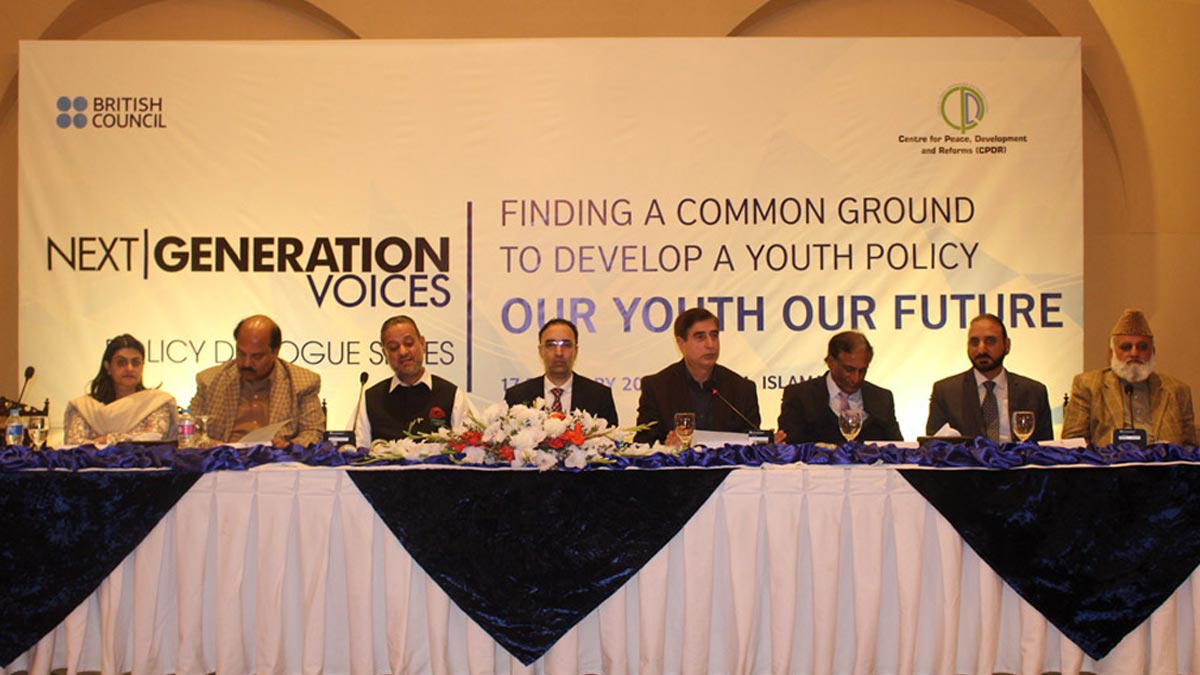
Around hundred and fifty people from cross sections of civil society participated in the event. They appreciated the effort of bringing political leaders belonging to different ideologies and parties together. Mr. Abdul Rashid Turabi, Ameer Jamat-e-Islami, was also present on the occasion and he spoke at length about active involvement of youth in his party’s activities and pledged full support to the elected Government for the formulation of youth policy.
Appreciating the organizers for such an important policy initiative, the senior leader of Peoples Party AJK, Mr. Latif Akbar spoke briefly about the measures necessary to incorporate less privileged sections of youth in making and implementation of the youth policy. He reaffirmed his support for popular demands of youth ranging from 25% quota in local bodies elections to full functioning of student unions at all levels in colleges and universities.
Sardar Attique Ahmed Khan, Ex-Prime Minister of AJK and the President of Muslim Conference, had some divergent views about the performance of incumbent government but he assured full support for the making and promulgation of youth policy, provided the youth representatives are selected in a transparent way.
Speaker AJK Assembly, Shah Ghulam Qadir, appreciated all suggestions given by the young participants as well as the guest speakers and emphasized that the Government has already taken good care of public service commission and jobs in the education department. He asked for unflattering support from youth in carrying out the necessary policy reforms and announced the making of a youth task force as per the directions of Prime Minister which will help legislate and draft the youth policy.
The event took place in good fervor and zeal where participants kept asking critical questions to the speakers and unanimously demanded that such forums and dialogues must be held on regular basis.
Shazia Khawar, Director Society – South Asia in the British Council once again reiterated British Council’s commitment to the cause of young people in the region. She spoke about transforming the society through engagement with youth and providing future leaders the spaces to make their voices heard as a vital pre-requisite to a vibrant democracy in the region.
Ershad Mahmud, Executive Director, CPDR said that such initiatives and active civil society engagement form the basis of true and participatory democracy to which the organization is fully committed. However, to create a facilitating environment in which the young people, as partners and leaders, are placed at the centre of development; a comprehensive youth policy is the key.
Dr. Waqas Ali, Director Programs, CPDR stated that despite the fact that the subject has always remained under discussion in Azad Jammu and Kashmir (AJK), we are still struggling to achieve inclusive and effective youth policy. Unemployment, brain drain, lack of quality education and the dispute of Jammu and Kashmir are among core issues of young people in AJK. The aim of this dialogue is to think creatively to find a common ground, present fresh ideas and innovative approach for formulation of youth policy in AJK, he maintained.
Concluding the session, President CPDR thanked all participants and guest speakers for their timely arrival and active participation. He focused on the necessity of structured debate and disciplined dialogue as well as the hailed efforts of the organizers for creating such avenues of international standard.
Five consensus points, mutually agreed by all parties, were announced at the end of the event which include, the allocation of quota for young people in upcoming local bodies elections, restoration of students unions in academic institutions after the consultation with stakeholders, dedicated programs to enhance technical skills of young people, gradual enhancement of youth ministry budget, and improving quality education in educational institutes in AJK.
Picture Gallery:









